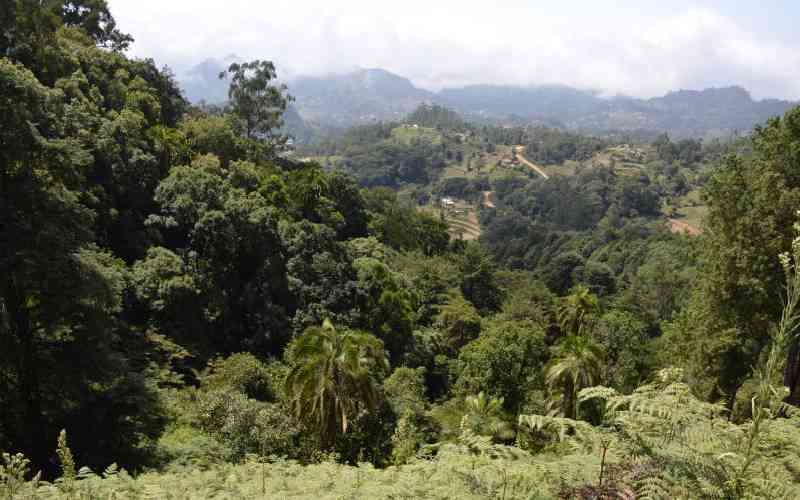×
The Standard e-Paper
Kenya's Bold Newspaper

Viewed from the peak of Iyale rock in Wundanyi sub-county in Taita Taveta, Vuria hill stands menacingly tall above the clouds.
Vuria and Iyale, are among the few pockets of forests that together with Ngangao, Chawia, Mbololo and Fururu make up Taita Hills forest.